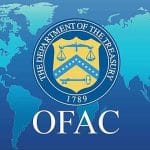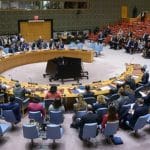Responding to the energy crisis exacerbated by Russia’s invasion of Ukraine, the European Parliament approved on February 29 legislation to tackle energy market manipulation by strengthening transparency and oversight.
The law, which was already informally agreed upon with European Council, introduces new measures to better protect the EU’s wholesale energy market, better protecting the energy bills of European households and businesses from potential short-term market price fluctuations.
The European Commission introduced the legislative proposal along with a reform of the Electricity Market Design on March 14, 2023. The proposal updates the Regulation on Wholesale Energy Market Integrity and Transparency (REMIT), established in 2011 to combat insider trading and market manipulation, ensuring transparency and stability in the EU Energy markets.
“REMIT is a very important tool in our efforts to prevent and fight malpractices in the energy market,” said lead MEP Maria da Graca Carvalho from Portugal. “With this legislation, European consumers, as well as small operators, will be served better. We will have stronger energy markets,” she argued.
Introducing a closer alignment to EU rules on the transparency of financial markets, REMIT also covers new trading practices, such as algorithmic trading, and strengthens provisions on reporting and monitoring to protect consumers from market abuses.
According to the EU Parliament, during negotiations with Council, MEPs reinforced the EU dimension and the supervisory role of the Agency for the Cooperation of Energy Regulators (ACER). The Agency will be tasked with adopting decisions on inspections, requests for information and authorisations of Inside Information Platforms (IIPs) and Registered Reporting Mechanisms (RRMs).

If ACER does not receive the necessary information during investigations concerning cross border cases, it can impose periodic penalty payments, the EU Parliament said.
Italian MEP Patrizia Toia, negotiator on REMIT in the Parliament’s committee on energy, research and industry, argued that the issues on the energy market started long before the Russian invasion against Ukraine. “The war only brought the problems to their current acute phase where more and more people and businesses are struggling to pay their bills, especially vulnerable families and small and medium enterprises. One of the main causes for this unacceptable situation were the manipulations on the energy market within our Union,” she said, adding that an update to REMIT would lead to more checks on the market, more monitoring and more fines for those taking advantage of the energy crisis.
In order for REMIT to achieve its goals, the EU reinforced the supervisory role of ACER. “From now on, the agency will have the power to investigate cross-border cases affecting at least two member states and to take decisions on inspections, requests for information and authorisations of certain market participants. ACER will also be able to impose periodic penalty payments if market participants fail to provide the requested information,” Toia said.
“This is a considerable improvement from the current state of play where too many cases of evident market manipulations remain untreated at a national level. The periodic penalty payments, imposed by ACER, will be 3 percent of the average daily turnover in the preceding business year or, in the case of natural persons, 2 percent of the average daily income in the preceding calendar year,” she explained.
Turning to players on the EU energy market coming from third countries, she stressed that they will have to appoint a representative in a member state in which they are active on the wholesale energy market. “In this way, ACER and the national regulators will know who to refer to for information in cases of doubt on manipulations on the EU wholesale energy market,” she said.
The regulation was adopted with 440 votes to 32, with 31 abstentions. It will now have to also be formally endorsed by Council in order to become law.








